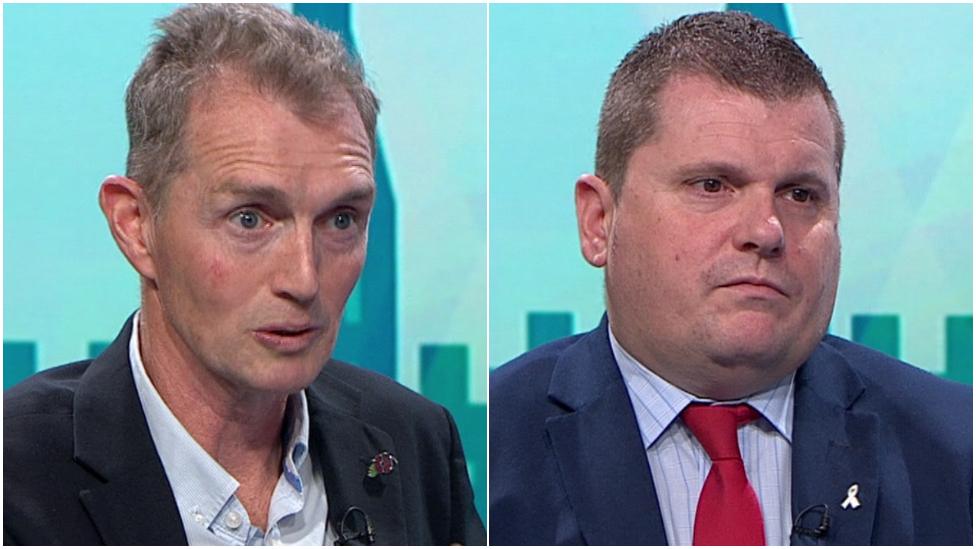Wales council boss warns of huge, unprecedented cuts
- Published

Councils fund schools, care services, waste collections and some local transport
Councils will have to make huge cuts without more government funding, according to a senior Labour local authority leader.
Andrew Morgan, the leader of the Welsh Local Government Association, said demands for social care, inflation and energy costs were eating into budgets.
It comes ahead of UK and Welsh government budgets before the new year.
Welsh Secretary David TC Davies said the UK is "in a very difficult state" and help would be targeted.
Mr Morgan, the leader of Rhondda Cynon Taf council since 2014, said he had "been there through austerity".
But he told BBC Politics Wales: "This is nothing like what we've seen previously".
The council was projected to go into the red by more than £20m this year, "something that has never happened before," he said.

Welsh Secretary David TC Davies and Andrew Morgan, who represents council leaders in Wales
"Passing that on to council tax payers isn't going to be an option.
"Undoubtedly there will be huge cuts on the scale the public have not seen next year unless something happens."
'Can't borrow our way out'
He said council tax would have to rise on average by £130 per home just to cover the authority's increased gas and electricity bills for buildings like schools and leisure centres.
Newly-appointed Welsh Secretary David TC Davies told the programme the UK was "in a very difficult state financially and we are not going to be able to borrow our way out of it".
He could not say whether tax rises or spending cuts would be imposed but said Chancellor Jeremy Hunt and Prime Minister Rishi Sunak were "looking at that very carefully".
UK government spending would be targeted at the most vulnerable, he added.
There will be a UK government budget in November, and Welsh government one in December.
The Welsh government said: "Local authorities are facing enormous financial pressure as a direct result of the UK government's disastrous mini-budget which has plunged the country's finances into chaos.
"It is essential that we do not now enter a new era of austerity.
"The chancellor should increase funding for public services so we can support local authorities to deal with the consequences of inflation and the cost of living crisis."
Inflation, which measures the rate at which prices are rising, hit a 40-year high of 10.1% last month.
Chancellor Jeremy Hunt has said his top priority was "economic stability".
- Published28 October 2022

- Published17 July 2024

- Published25 September 2022
